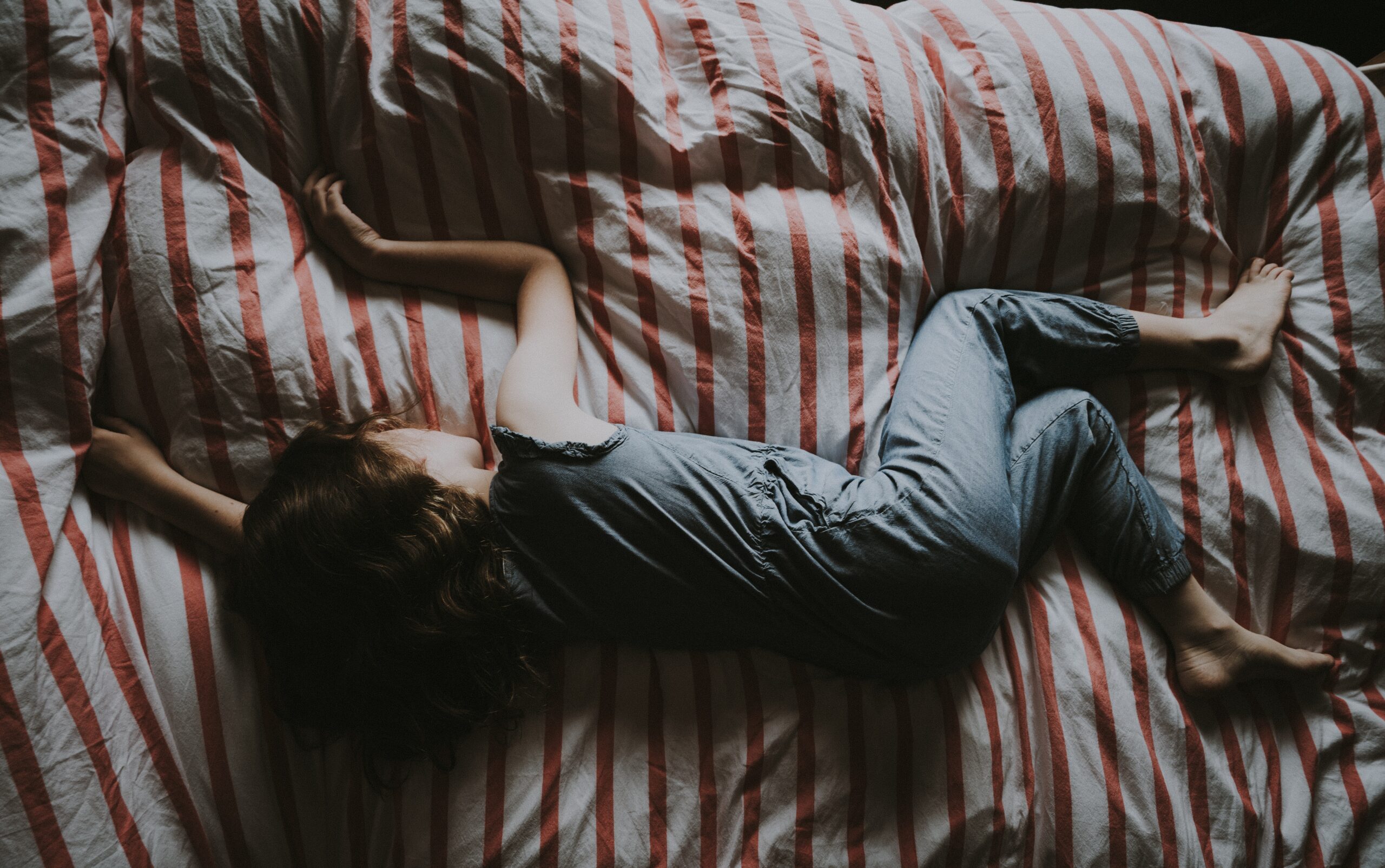8 WAYS TO PROMOTE GOOD SLEEP HYGIENE FOR KIDS
We all know how crucial a good night’s sleep is for children’s growth and well-being. In this blog post, we’ll explore practical strategies to establish a solid sleep routine and create a sleep-friendly environment for your little ones.
Here’s what parents need to know about promoting positive sleep hygiene for kids. (Bonus: these tips work well for grown-ups, too!)
What Is Sleep Hygiene?
Sleep hygiene refers to a set of healthy sleeping habits that enables children and adolescents to fall asleep more quickly and can enhance sleep duration and quality. Without good sleep hygiene, children can experience sleep issues, including difficulty falling asleep, frequent night wakings, and waking up too early.
What Are The Side Effects Of Poor Sleep Hygiene In Children?
If your child suffers from sleepless nights, you may have noticed some less than ideal side-effects. Research shows that not getting enough sleep can cause:
- Daytime sleepiness
- Behavioral issues (irritability, mood swings, temper tantrums)
- Reduced cognitive functioning (memory, attention, problem-solving)
- Physical health problems (weakened immune function, obesity)
- Emotional disturbances (anxiety, mood disturbances, symptoms of depression)
- Impaired growth and development
- Increased risk of accidents
- Difficulty concentrating and learning
- Academic performance decline
- Higher susceptibility to illnesses and infections
- Impaired decision-making abilities
8 Ways To Establish Good Sleep Hygiene In Children
Consistency and routine are key in establishing sleep hygiene. Here are recommendations to help your child get better sleep:
- Maintain a consistent bedtime.
Maintaining a consistent bedtime is a key factor in promoting healthy sleep habits for children. Our bodies have a natural internal clock, known as the circadian rhythm, which regulates our sleep-wake cycle.
When we establish a regular bedtime routine and stick to it, we help synchronize this internal clock, making it easier for our kids to fall asleep and wake up at the desired times.
To optimize the effectiveness of a consistent bedtime, aim for a window of around 30 minutes.
- Get plenty of exercise during the day.
Between computers, television, and cell phones, many kids and teens don’t get sufficient regular physical activity.
Make sure your child is physically active (getting out of breath) at least 15 minutes per day.
Stuck inside because of the weather? Make an effort to turn off the TV and cellphones and get moving. Race inside the halls of your home, practice cartwheels and handstands, go walk in a mall, anything to get your kids moving.
- Spend time outside.
Incorporating outdoor time into your child’s daily routine can have a positive impact on their sleep hygiene. Aim for at least 30 minutes of outdoor playtime each day, preferably during daylight hours.
Whether it’s a walk in the park, playing in the backyard, or participating in outdoor sports or activities, encourage your child to spend time outside and soak up the natural light.
Even on cloudy or snowy days, sunlight still filters through the clouds and provides beneficial rays. When we spend time outdoors, our eyes receive natural light, which stimulates the production of serotonin, a neurotransmitter that promotes wakefulness and positive mood.
This exposure to sunlight during the day helps reinforce our natural circadian rhythm, making it easier for our bodies to distinguish between day and night.
- Bedtime should be boring!
Creating a relaxing bedtime routine is crucial in preparing your child’s body and mind for sleep. The concept of “bedtime should be boring” emphasizes the need to avoid stimulating or exciting activities close to bedtime, as they can interfere with the natural transition to sleep.
Consider incorporating the following into your child’s bedtime routine:
- Soft, relaxing music
- Reading age-appropriate books
- Relaxing sensory activities, such as puzzles, drawing, coloring, or engaging with sensory toys like stress balls or squishy toys
- Never underestimate the sleeping environment.
Creating a dark and soothing sleep environment is crucial for promoting quality sleep in children. Removing sources of light, such as electronics and alarm clocks, and investing in blackout curtains can help create a conducive atmosphere.
While a dim night light may provide comfort, minimizing exposure to electronic devices and incorporating calming elements like white noise machines or fans can enhance the sleep environment.
Prioritizing a dark and peaceful setting helps signal to the child’s body that it’s time for rest, improving their sleep quality.
- Night wakings.
If your child/teen is unable to fall asleep at bedtime or during the night for more than 45 minutes, encourage them to get up, stretch or do something boring until you feel sufficiently sleepy. No electronics! Lights should remain dimmed.
It is recommended that night lights be 2000 kelvins or less (i.e., the light should be of red-yellow hue, warmth is measured in kelvins) and 50 lumens or lower (lumens is a measurement of how much light the bulb gives off).
- Relaxation techniques.
Learn and practice together relaxing strategies to help reduce tension before sleep, such as meditation, mindfulness exercises, and progressive muscle relaxation. My favorite is the happy place visualization technique.
- Address mental health issues.
Anxiety and depression are known to interfere with sleep, make sure these are being addressed in child psychotherapy or adolescent psychotherapy.
Things To Avoid For Healthy Sleep Hygiene
- Caffeine in the afternoon or later. Be aware that caffeine is present in coffee and tea but also in sodas and chocolate (and most Starbucks drinks!)
- Sending your child to bed with a full stomach or full bladder. Digestion and having to use the washroom can disrupt your child’s sleep. Late night snacking might be a cue that the body is tired rather than hungry.
- High intensity exercise or hot baths right before bed. Research shows that the body temperature must be cool to feel comfortable falling asleep. However, light exercise and a warm shower or bath right before bedtime can help some individuals relax. Experiment with what works best for your child.
- Electronics at least 30 minutes before bed. This includes the computer, tablet, phone, and TV. If listening to music, make sure not to look at the screen.
- Checking the time, as this may create more anxiety. Make sure your child or teen’s alarm clock face is turned away so that they’re not constantly checking the time.
- Sleep trackers should be used with caution. For some teens, it can create more anxiety knowing they didn’t spend sufficient time in deep sleep. Focusing on ”feeling refreshed” might be a better metric.
If Ongoing Sleep Issues Persist
Of note, if your child continues to have difficulty with sleep despite implementing the above suggestions, you should talk to your family doctor to rule-out medical issues, such as obstructive sleep apnea. Your family doctor can also recommend supplements to help with sleep (like melatonin or magnesium) if needed.
Parent Consultations For Bedtime Solution: Parent Consultations
If you’re struggling with specific sleep issues or need personalized guidance in forming effective bedtime routines for your child, Dr. Leon can help. Each session includes expert advice and tailored strategies to address your child’s unique needs.
Prioritize your child’s sleep health and schedule a parent consultation today to unlock the secrets to better bedtime routines and improved sleep for the whole family.
Read These Next
- More excellent tips for developing strong sleep hygiene: 20 Sleep Hygiene Tips and Worksheets for Kids & Teenagers
- Some expert strategies for problem solving: Sleep Strategies for Children
Frequently Asked Questions
How much sleep do children need at different ages?
The recommended sleep durations vary by age. On average, preschoolers (3-5 years) need 10-13 hours, school-age children (6-12 years) require 9-12 hours, and teenagers (13-18 years) should aim for 8-10 hours of sleep per night.
Are there any specific bedtime routines that can help promote better sleep?
Yes, establishing a consistent bedtime routine can be highly beneficial. A bedtime routine might include activities like a warm bath, reading a book, listening to calming music, or engaging in relaxation exercises. The key is to choose activities that promote relaxation and signal to the child that it’s time to wind down and prepare for sleep.
How can I create a sleep-friendly environment in my child’s bedroom?
To create a sleep-friendly environment, ensure the bedroom is dark, quiet, and at a comfortable temperature. Remove or minimize sources of light, use blackout curtains or blinds, and consider using white noise machines to block out disruptive sounds. Keep the bedroom free from electronics and ensure a comfortable mattress and bedding.
What strategies can I use to address bedtime resistance and ensure my child falls asleep easily?
To address bedtime resistance, establish a consistent sleep schedule, set clear expectations and boundaries, and gradually adjust the routine if needed. Create a calming bedtime routine, provide comfort and reassurance, and limit stimulating activities close to bedtime. If the resistance persists, consult with a pediatrician or sleep specialist for further guidance and support.
In Summary
You can promote good sleep hygiene for kids by establishing a consistent bedtime routine that includes calming activities like reading or gentle music, helping signal their bodies it’s time to wind down. Create a sleep-conducive environment by keeping their bedroom dark, cool, and comfortable, limiting screen time before bed, and ensuring they get enough physical activity during the day to support restful sleep. Encourage regular sleep schedules, aiming for age-appropriate amounts of sleep each night to promote better overall health, mood, and cognitive function.

Dr. Stephanie Leon
Dr. Leon is a clinical psychologist and neuropsychologist practicing in the province of Ontario and Quebec. She works with children, teens, and their parents to address emotional, behavioural, and cognitive difficulties. Dr. Leon offers online psychology services through the Leon Psychology Clinic.
Found this helpful? Share with a Friend!

